
Drill into timber, soft metal and hard materials including brick and concrete with the RYOBI 18V ONE+ Hammer Drill.
Checkout at Bunnings to calculate delivery or collect in-store
How to choose the right 18V ONE+ battery for your product and task. Read more.

Start typing in the search bar. Our autocomplete feature will provide relevant suggestions. Press 'tab' to accept an autocomplete suggestion.
Your cutting and clearing jobs just got easier with the RYOBI range of chainsaws and pruners.
Treated with respect, a well-maintained chainsaw delivers powerful cutting performance and turns hours of hard work with an axe, into minutes. But which chainsaw is right for your task? Choosing the right one makes your life easier and safer.
Chainsaws come in a variety of sizes – for a range of different applications. From small to large jobs, and everything in between, RYOBI has a chainsaw to suit your needs.
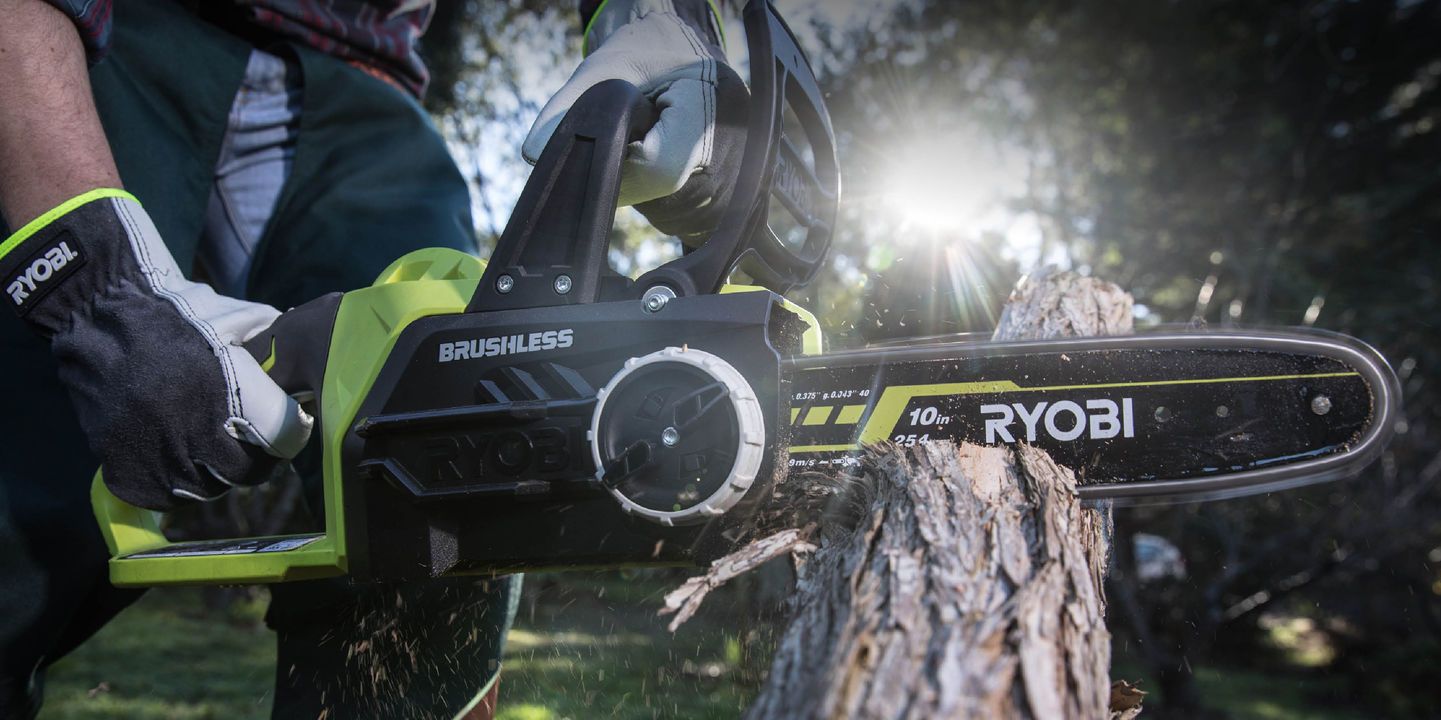
As a starting point, you should have an idea of the diameter of the material you want to cut. This will determine the bar length of a chainsaw that will suit your needs. See the chart below for help on making the right choice.
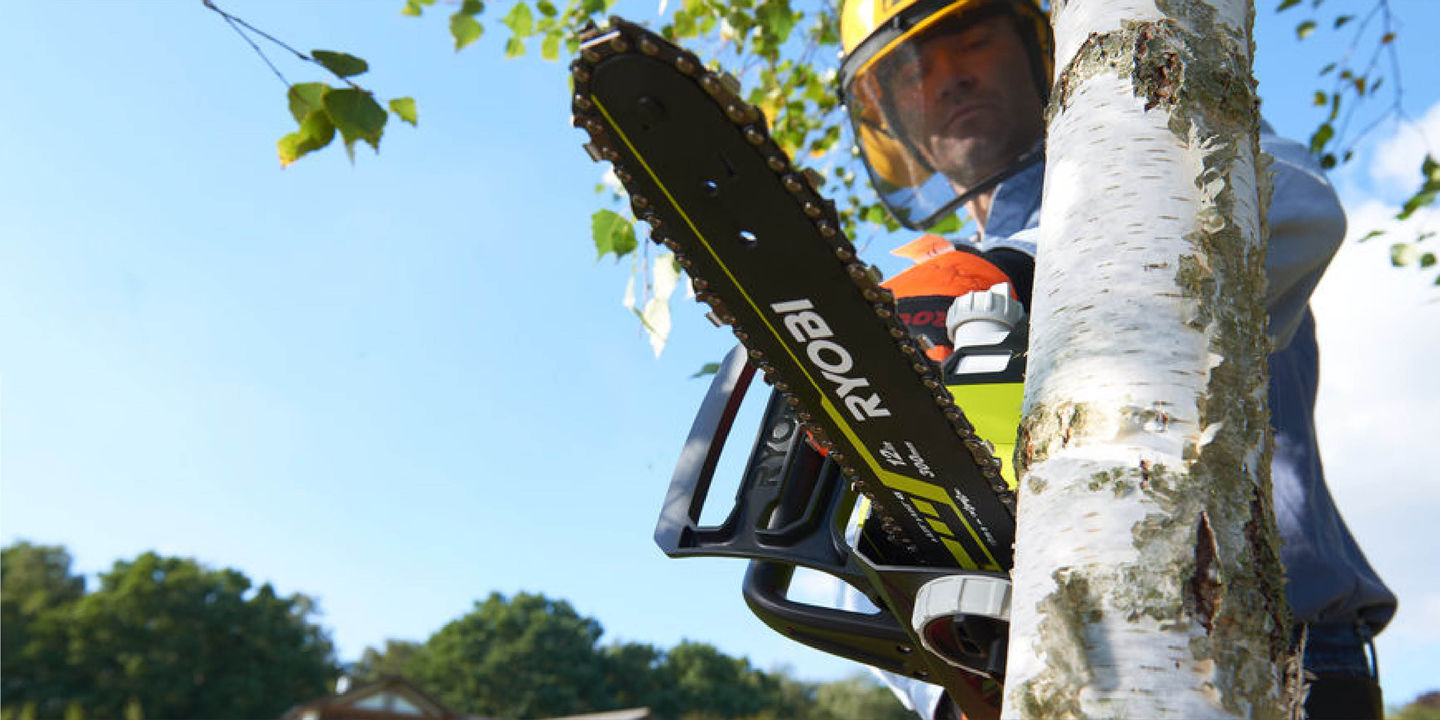
If you’re tackling some trees in the backyard, depending on your task and frequency, either a battery-powered, petrol or AC chainsaw (if you have a power outlet within 25m) are all viable alternatives. However, if you’re heading out camping or on a 4x4 adventure, a battery model means no smelly or messy fuel in the car. But, if you’re a serious off-roader, you might need petrol power to clear the track of large fallen trees.
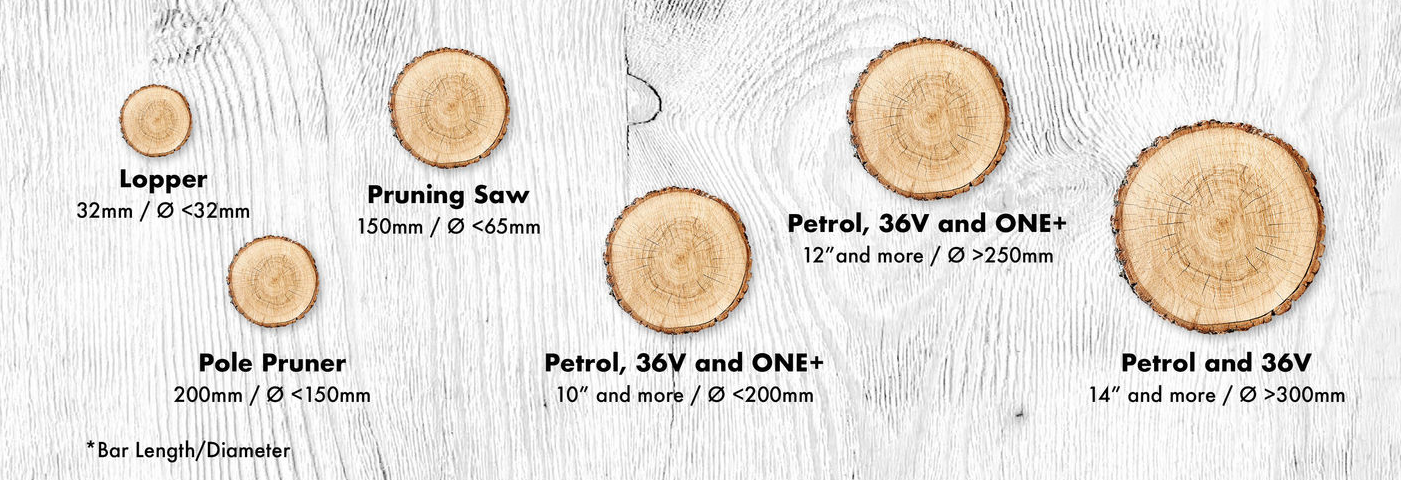
Choose the right type of cutting tool to suit the diameter of what you are cutting. Sometimes a chainsaw might not be the appropriate tool to use. Other times you might need the power of a 36V or petrol-powered chainsaw to make the cut.
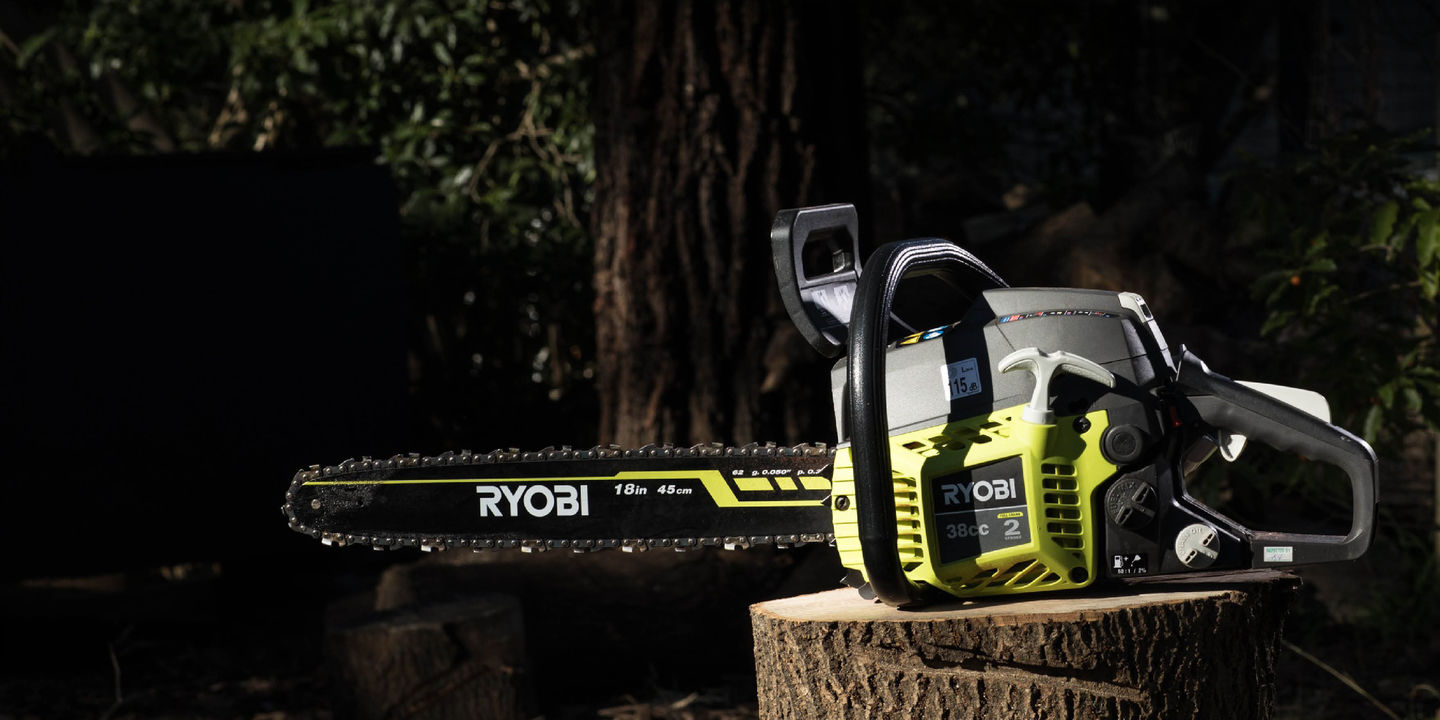
The chainsaw bar should be longer (where possible) than the diameter of the material you wish to cut – usually described in inches or millimetres
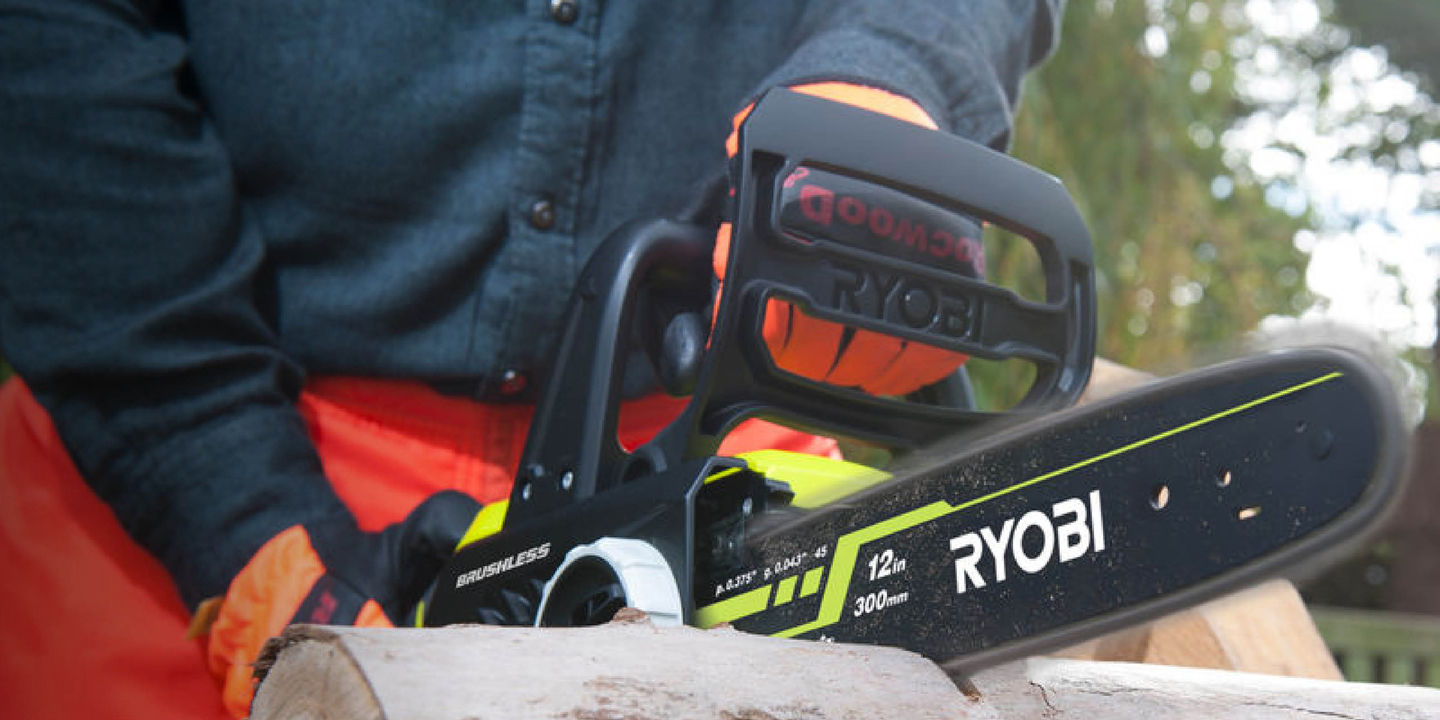
A chain brake is a safety device designed to protect the operator. The chain brake can be activated manually or in the event of a dangerous scenario, may be activated automatically.
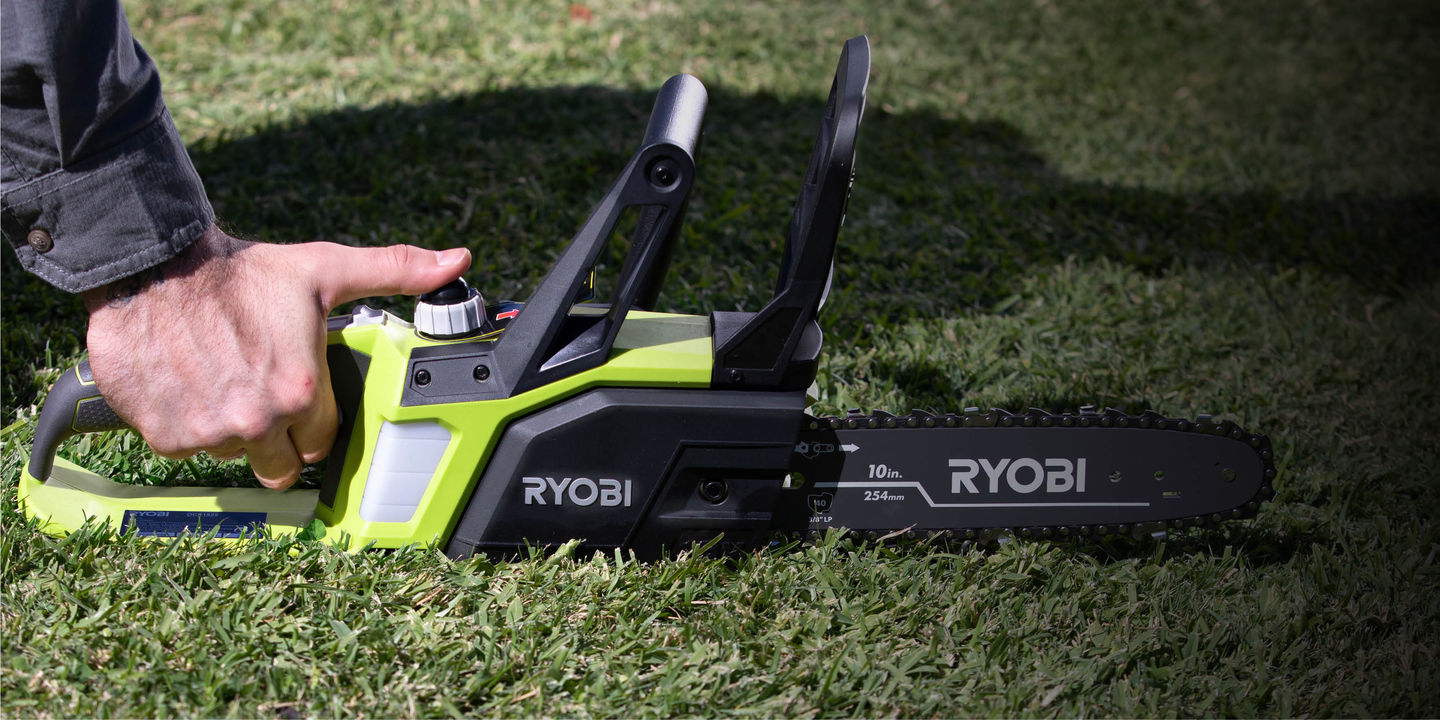
To work efficiently, all chainsaws require that the bar and chain be oiled constantly to reduce friction and heat. This allows the chain to travel smoothly around the bar at the required speed to cut effectively. All chainsaws have onboard oil tanks, some require manual pumping while others disperse oil automatically.
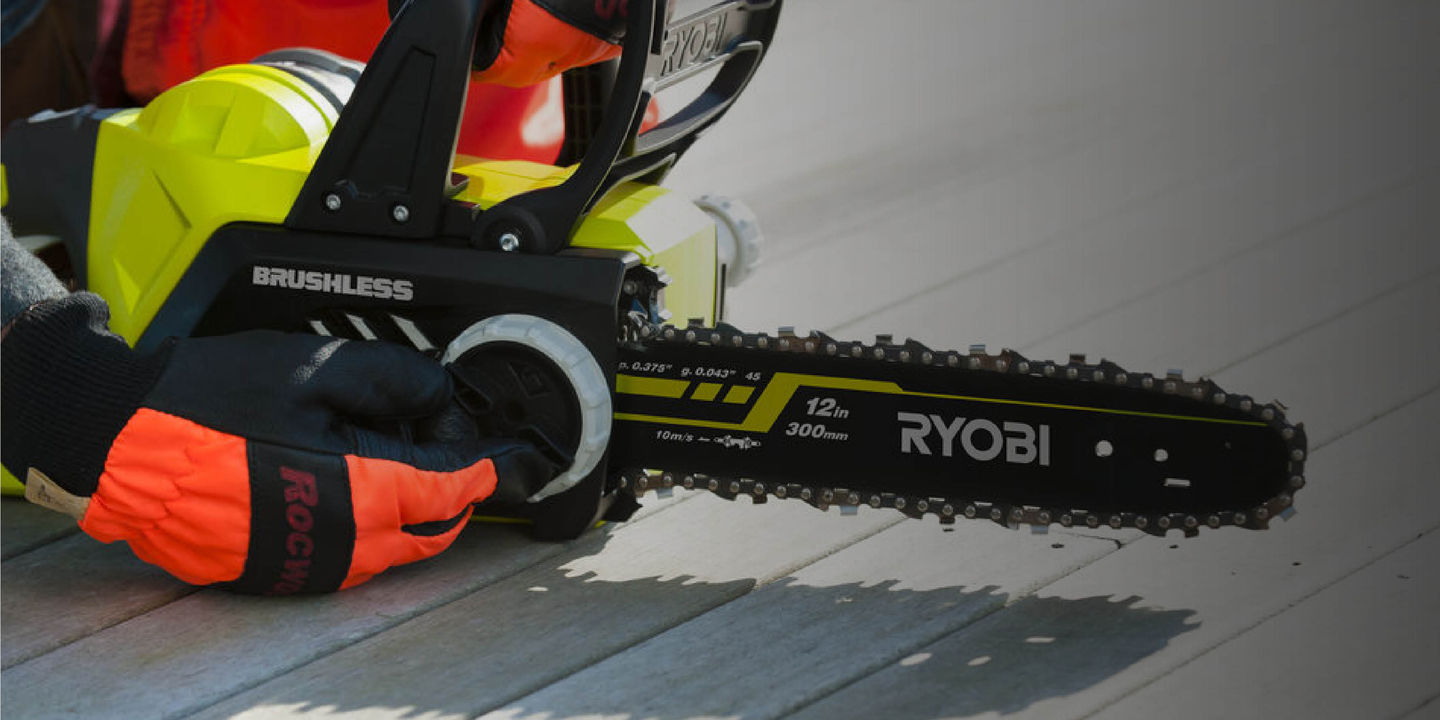
Chainsaw chains should be tensioned regularly during operation (around 1cm of ‘slack’ when the chain is pulled in the middle of the bar). This because as the chain heats during normal operation, it stretches. After operation, the tension also needs to be released when chain cools and shrinks to its original length. Some newer chainsaw models have a single dial to turn to tighten and release the chain while other models achieve this result by turning a screw located where the bar meets the chainsaw body.


